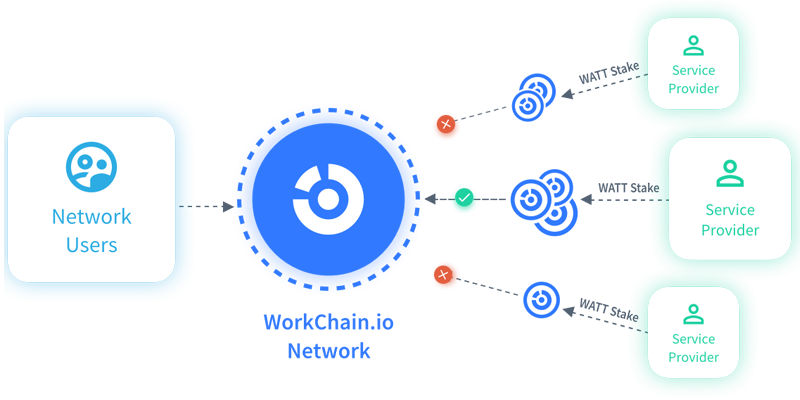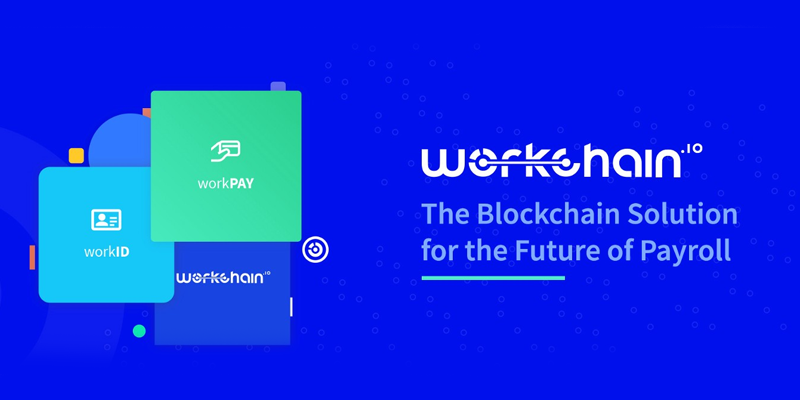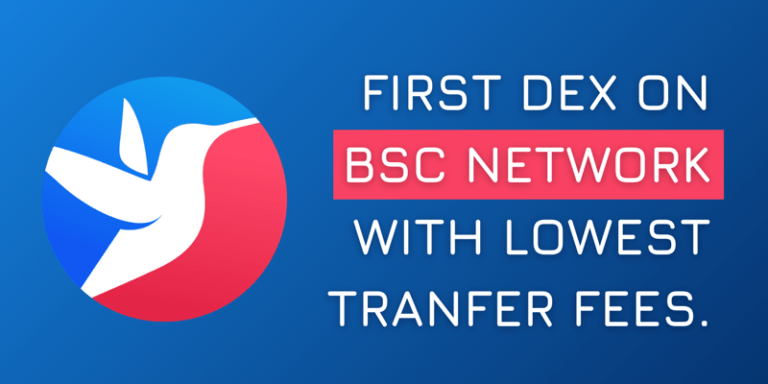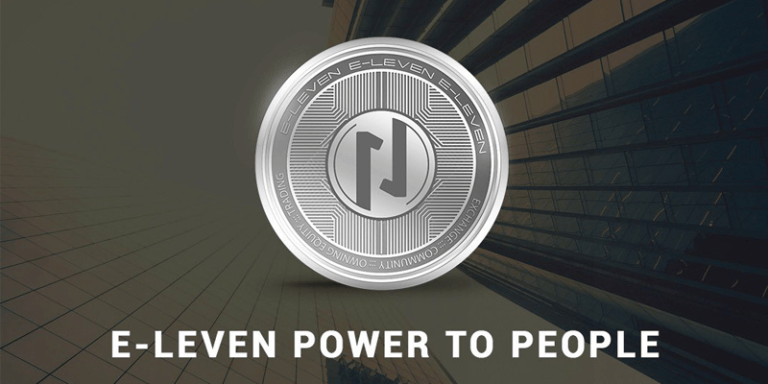Workchain.io aims to make works earn in cryptocurrency possible with instant paycheck from the moment they clock out and this gives financial control that everyone deserves. Workchain provides following framework to solve the existing old payroll system.
- WorkID – Unique ID for each worker with immutable CV with verified details of the worker.
- WorkPay – Enable real time payment for works on workchain.io
- WorkPay Advance – Enable less risky access to peer to peer loans with verified credit history for works.
WorkChain.io is a distributed, decentralized blockchain-based public ledger that replaces slow traditional payroll cycles with real-time cryptocurrency payroll. By building unified, immutable and verified work and payment records, WorkChain.io creates a framework that connects all the steps of payroll into one simple and efficient flow from work completion to payout, building a new ecosystem along the way.
For workers, it means instant access to earnings – their paycheck on-demand. For employers, it provides an advanced, automated payroll solution that is efficient, cost-effective and ends the reliance on third-party processors and banks.
Platform Architecture
WorkChain.io will provide a unified interface to collect and store work, educational and payment records through a model that incentivizes parties to provide the records as well as verify the authenticity of them. While any record can be added to WorkChain.io by an entity, the validity of a record must be confirmed through the platform’s Trust Score.
The primary focus and utility of WorkChain.io lie in the immutability of its data, which will be achieved through blockchain-based Ethereum smart contracts, distributed data storage, and the platform’s node-accessible frontend which forms the platform’s domain logic – the way in which its data is created, stored and changed.
The Ethereum Public Ledger
Ethereum, on which WorkChain.io is built, is a decentralized software platform that enables Turing-complete smart contracts and Distributed Applications (DApps) to be built and run without any downtime, fraud, control or involvement from a third-party. WorkChain.io is a central technology layer built on top of the public Ethereum blockchain, then upon this exists a third layer for the WorkChain.io Application Ecosystem.
Smart Contracts
The smart contracts Ethereum creates will control agreements between users and entities to form records on WorkChain.io, executing a “handshake” between the two parties to verify the data being recorded based on the platform’s defined conditions, and automatically enforcing the obligations of the two parties as encoded in the smart contract.
Technology Partners
WorkChain.io recognizes that there is a broad ecosystem of web 2.0 and 3.0 platforms that already provide solutions to some of the needs of this project. They will partner and integrate with these leading established solutions so that they can remain focused on their core mission of unlocking new and better ways for employees to find work and access capital.
Primary Sectors for technology partners:
- Identity
In addition to their own internal platform validations for identity such as email, SMS, and social media profiles, we will work with external providers to further ensure individuals’ identities and assign unique use addresses on WorkChain.io. - Skill Assessment / Validation
Verified skills are vital to forming a trusted professional profile for individuals. These records currently exist on LinkedIn but are unreliable. Decentralized professional social networking platform Indorse is just one integration solution that will be used to create trusted skill verification through validated shared work histories of individuals. - Education Verification
Academic qualifications on LinkedIn or in CVs are difficult to verify because education histories are typically disconnectedly stored by issuing institutions. WorkChain.io will integrate with education and degree verification services to connect education histories to form verified education records fundamental to trusted professional identities.
- Integration Partners / Mainstream Adoption
- Humanity.com
- WorkPuls
- And more to come.
- User and Partner Incentivization Programs
- Users – With our proprietary user-incentivization application users can be rewarded on the platform for signing up, referrals,etc.
- Partners – An additional revenue stream as well as value-add service to their existing business.
- Stage 1 – Early Adopters / Proof of Concept
- WorkChain.io will switch to full workPAY, alongside pilot users from 5 additional businesses.
- Adoption by successfully-funded ICO companies to pay their employees in crypto. Available only to companies with 4+ rated ICO that successfully raised in the past 12 months.
- Based on industry data, this is $250m in payroll (crypto, fiat and tokens) that can be processed via WorkChain.io, with potential $5m annual revenue. (source)
- Stage 2 – Employees First – Integrating with established payroll and workforce management companies to connect with established systems to provide immediate utility to employees.
- Stage 3 – Partnerships — Partner with on-demand/gig work providers to enable instant payouts for their workers.
- Stage 4 – Businesses — As the WorkChain.io technology advances, completely replace outdated payroll solutions businesses rely on today with workPAY.
WorkChain.io App Token (“WATT”)
Your Membership Token to the Future of Payroll
The transactions made through the WorkChain.io ecosystem and the interoperability of its applications will be powered by the platform’s native utility token, WorkChain.io App Tokens (‘WATT’, ‘WATT Token’).
The functionality of WATT Tokens will naturally expand over time in step with the adoption and growth of WorkChain.io. As the number of users on the platform grows, so will the utility and common product use of WATT Tokens.
Token Information:
- Supply : 1,000,000,000
- Symbol : WATT
- Decimals : 18
- Type : ERC20
- Technology : Ethereum
- Address : 0x829a4ca1303383f1082b6b1fb937116e4b3b5605
WATT Tokens will be Ethereum-based ERC20 tokens. ERC20 is a technical standard used for smart contracts on the Ethereum blockchain for implementing tokens that have intrinsic value and can be sent and received on the blockchain. Some of the advantages of using the ERC20 token format include:
- Transferability of ERC20 tokens to other DAppChains
- Broad adoption of wallets and exchanges
- Strong community of the Ethereum blockchain makes ERC20 reliable
- Ethereum has scaling plans that will enable faster transactions
- Security and dependability – Ethereum is the second most prominent blockchain network

Token Vesting
WorkChain.io team is in this for the long run.
All tokens will be vested transparently through smart contracts. Their token model further encourages long-term staking (12 months-plus) by protocol participants.
Staking is the primary use for WATT Tokens, enabling different participants access to the network and to perform more work on WorkChain.io based on the size of the stake.
Primary Parties and their benefits in Staking WATT Tokens.
Work Token Model
A service provider stakes WATT Token to earn the right to perform work for the network.

WATT Tokens enable secure and verified transactions – the sharing of value – between individuals and entities on WorkChain.io. WATT Tokens are vital to the adoption, functionality and future mainstream success of WorkChain.io.
Writing Data
WATT Tokens will be earned by entities and individuals who provide trusted data to WorkChain.io to build the platform’s records. A reward for trusted, verified data.
Verifying Data
WATT Tokens will be awarded to users who verify data shared on WorkChain.io. In this way, WATT Tokens work alongside the Trust Score Protocol as an internal measure of quality for the verification of data.
More Work = More Revenue
All ecosystem revenue is split between WorkChain.io and Workers (lenders and work validators) that make the transaction possible.
- Small transaction fees (<5%) on all services and applications used on our platform.
- A % of loan interest collected directly in stable coin.
- WATT tokens collected and resold when used in transactions.
- Transaction fee revenue share on our payroll debit/visa cards when used at merchants (Merchant Fees).
Ecosystem Revenue Model Scenario
- Substantial opportunity for revenue growth from transactions as # of users increases
- As demand increases more tokens are required to stake
- Revenue split to workers is meaningful to facilitate adoption and further network demand
Quality data is what will fuel the creation of trusted WorkChain.io records and rapid user adoption of the platform. With this in mind, a sizeable percentage of the total WATT Token supply will be allocated as incentives to users and partners to drive platform growth and adoption.
- User Incentivization
Individual users who build up their workID profiles, integrate their accounts with third parties, refer users and validate data on WorkChain.io will be rewarded with WATT Tokens. - Partner Incentivization
To build the vibrant WorkChain.io partner ecosystem, platform partners that onboard their trusted user data to build work records will be rewarded with WATT Tokens.
For both partners and users, WATT Tokens are logged in a user’s wallet as they’re earned. And then can be put back to immediate work through accessing the functionality of the platform. This makes the token wallet an intrinsic part of platform use – not a static side-product like with many blockchain projects.
Q3 2017 WorkChain.io Project Starts
Q4 2017 Application Development Begins
Q1 2018 WorkChain.io Closed Alpha Version Release Public Release of WorkChain.io Vision
Q2 2018 White Paper Released WorkChain.io Public Beta on Blockchain
- Product Launch #1: World’s First Immutable CV Created with workID
Q3 2018 First integration with Proof of Work applications First workPAY Test Transactions
Q4 2018 Additional Integration with Proof of Work Applications SDK for Proof of Stake Records
- Product Launch #2: First Salaries Paid Through workPAY
Q1 2019 Onboarding Employers workPAY ADVANCE Beta Release
Q2 2019 Product Launch #3: workPAY ADVANCE Lending Application Launch
Q3 2019 Switch to Fully Decentralized Model



